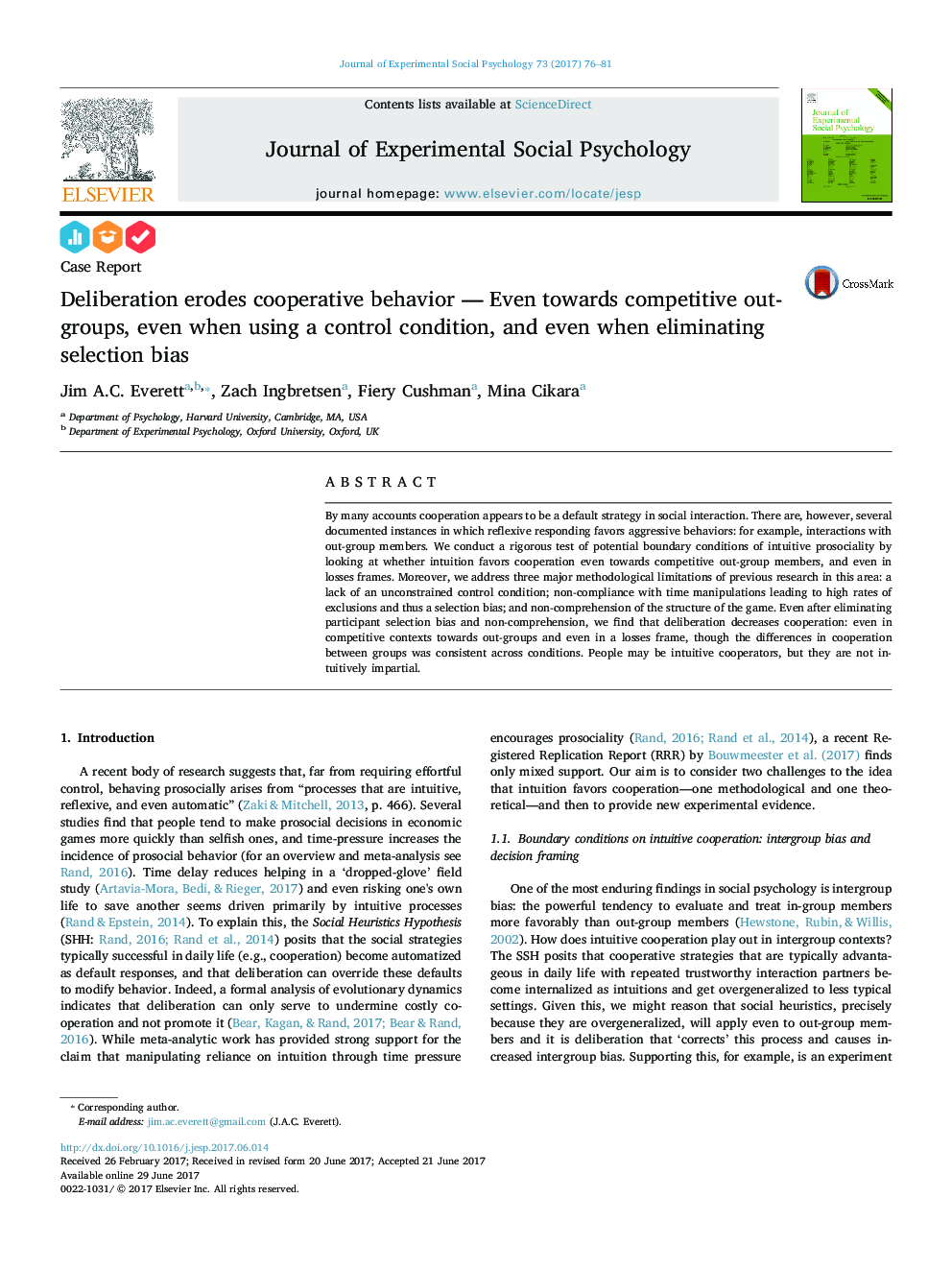| Article ID | Journal | Published Year | Pages | File Type |
|---|---|---|---|---|
| 5045705 | Journal of Experimental Social Psychology | 2017 | 6 Pages |
By many accounts cooperation appears to be a default strategy in social interaction. There are, however, several documented instances in which reflexive responding favors aggressive behaviors: for example, interactions with out-group members. We conduct a rigorous test of potential boundary conditions of intuitive prosociality by looking at whether intuition favors cooperation even towards competitive out-group members, and even in losses frames. Moreover, we address three major methodological limitations of previous research in this area: a lack of an unconstrained control condition; non-compliance with time manipulations leading to high rates of exclusions and thus a selection bias; and non-comprehension of the structure of the game. Even after eliminating participant selection bias and non-comprehension, we find that deliberation decreases cooperation: even in competitive contexts towards out-groups and even in a losses frame, though the differences in cooperation between groups was consistent across conditions. People may be intuitive cooperators, but they are not intuitively impartial.
